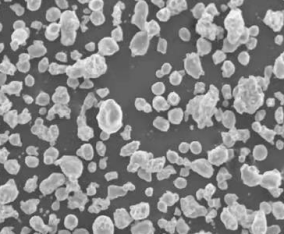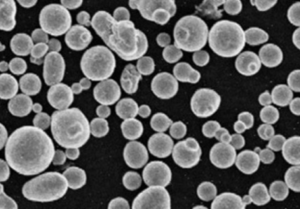개요 단조 등급 재료
단조 등급 소재는 내구성, 강도, 정밀도가 가장 중요한 산업의 근간을 이루는 소재입니다. 강한 압력과 고온을 견디도록 설계된 이러한 소재는 자동차 부품, 항공우주 부품, 중장비와 같이 스트레스를 받아도 무결성을 유지해야 하는 부품을 제조하는 데 필수적입니다. 단조는 주로 망치질이나 압착을 통해 압축력을 가해 금속을 성형하기 때문에 최종 제품의 강도와 성능을 보장하기 위해 올바른 소재를 선택하는 것이 중요합니다.
단조 등급 재료를 선택하려면 재료의 구성, 기계적 특성 및 특정 응용 분야 요구 사항을 고려해야 합니다. 야금학의 발전으로 다양한 산업적 요구에 적합한 고유한 특성을 지닌 수많은 금속 분말을 단조용으로 사용할 수 있게 되었습니다.

단조 등급 재료의 종류
단조 등급 재료는 구성과 특성에 따라 분류됩니다. 가장 일반적으로 사용되는 소재에는 탄소강, 합금강, 스테인리스강, 티타늄 합금 및 알루미늄 합금이 포함됩니다. 이러한 각 범주에는 경도, 인성, 마모 및 부식에 대한 저항성과 같은 고유한 특성을 제공하는 특정 등급이 있습니다.
| 재료 유형 | 공통 성적 | 구성 | 주요 속성 | 애플리케이션 |
|---|---|---|---|---|
| 탄소강 | 아시시 1045, 아시시 1060 | 철, 탄소, 망간 | 높은 강도, 적당한 인성, 우수한 가공성 | 자동차 부품, 볼트, 너트, 기어 |
| 합금강 | 아시시 4140, 아시시 4340 | 철, 탄소, 크롬, 몰리브덴 | 고강도, 우수한 경화성, 내마모성 | 크랭크샤프트, 기어, 액슬 |
| 스테인리스 스틸 | 304L, 316L | 철, 크롬, 니켈, 몰리브덴 | 내식성, 우수한 연성, 고강도 | 의료 기기, 식품 가공 장비 |
| 티타늄 합금 | Ti-6Al-4V, Ti-10V-2Fe-3Al | 티타늄, 알루미늄, 바나듐 | 높은 중량 대비 강도, 내식성 | 항공우주 부품, 의료용 임플란트 |
| 알루미늄 합금 | 2024, 6061 | 알루미늄, 구리, 마그네슘, 실리콘 | 경량, 우수한 내식성, 고강도 | 항공기 구조물, 해양 장비 |
단조 등급 재료의 구성
단조 등급 재료의 구성은 금속의 종류와 최종 제품의 원하는 특성에 따라 크게 달라집니다. 다음은 가장 일반적으로 사용되는 단조 재료의 구성에 대한 자세한 분석입니다.
| 재료 | 주요 요소 | 추가 요소 | 구성 세부 정보 |
|---|---|---|---|
| 탄소강(AISI 1045) | 철(98.51-98.98%), 탄소(0.42-0.50%) | 망간(0.60-0.90%), 인, 황 | 강도, 인성, 가공성 간의 균형이 잘 잡혀 있습니다. |
| 합금강(AISI 4140) | 철(96.79-97.95%), 탄소(0.38-0.43%) | 크롬(0.80-1.10%), 몰리브덴(0.15-0.25%) | 높은 경화성과 강도로 유명합니다. |
| 스테인리스 스틸(304L) | 철(66.0-70.0%), 크롬(18.0-20.0%) | 니켈(8.0-12.0%), 몰리브덴(<0.75%) | 우수한 내식성과 우수한 연성을 제공합니다. |
| 티타늄 합금(Ti-6Al-4V) | 티타늄(88.0-90.0%), 알루미늄(5.5-6.75%) | 바나듐(3.5-4.5%) | 무게 대비 강도가 높고 내구성이 뛰어나 항공우주 분야에서 광범위하게 사용됩니다. |
| 알루미늄 합금 (2024) | 알루미늄(90.7-94.7%), 구리(3.8-4.9%) | 망간(0.3-0.9%), 마그네슘(1.2-1.8%) | 가볍고 가공성이 뛰어나며 항공우주 구조물에 주로 사용됩니다. |
의 특성 단조 등급 재료
단조 등급 소재의 특성은 소재의 구성과 처리에 따라 크게 달라집니다. 몇 가지 일반적인 특성은 다음과 같습니다:
- 힘: 단조 등급 소재는 일반적으로 매우 강하기 때문에 높은 구조적 무결성이 요구되는 애플리케이션에 이상적입니다.
- 인성: 이러한 소재는 파손되기 전에 상당한 에너지를 흡수할 수 있어 강한 충격을 받는 부품에 매우 중요합니다.
- 연성: 많은 단조 등급 소재는 연성이 있어 부러지지 않고 변형될 수 있으며, 이는 단조 공정에서 중요한 역할을 합니다.
- 내식성: 특히 스테인리스강과 일부 티타늄 합금의 경우 내식성이 핵심 특성이며, 특히 열악한 환경에서는 더욱 그렇습니다.
- 내마모성: 특정 합금강은 내마모성이 뛰어나 기어 및 베어링과 같은 부품의 수명을 연장하도록 설계되었습니다.
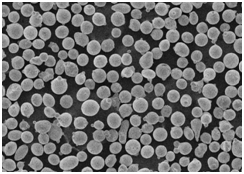
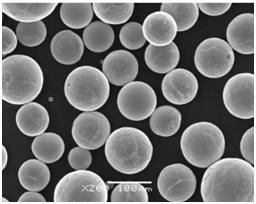
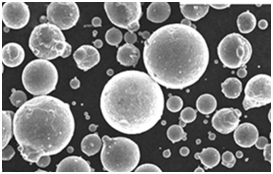
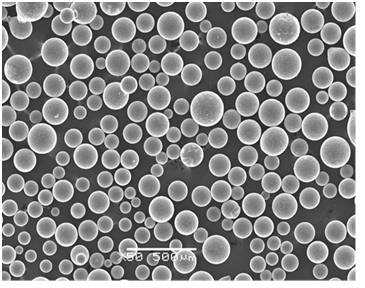

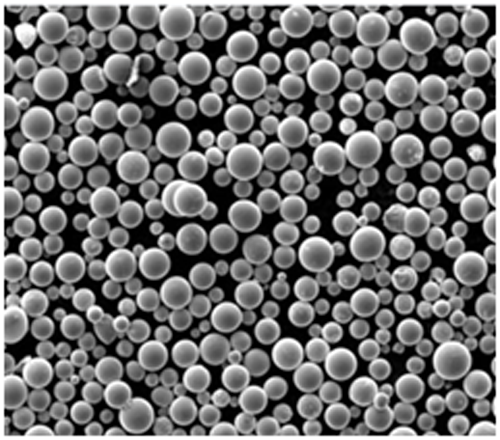
단조용 특정 금속 분말 모델
단조에 있어 금속 분말의 선택은 매우 중요합니다. 다음은 업계에서 널리 사용되는 10가지 특정 금속 분말 모델입니다:
- AISI 1045 스틸 파우더
- 설명: 가공성과 용접성이 우수한 중탄소강입니다. 강도와 내마모성이 요구되는 부품에 널리 사용됩니다.
- 애플리케이션: 자동차 부품, 기계 부품 및 기어에 이상적입니다.
- AISI 1060 스틸 파우더
- 설명: 경도와 날카로운 모서리를 유지하는 능력으로 잘 알려진 고탄소강입니다. 강도와 인성의 조합이 필요한 용도에 자주 사용됩니다.
- 애플리케이션: 칼, 칼날, 고강도 공구를 만드는 데 사용됩니다.
- AISI 4140 합금강 분말
- 설명: 크롬-몰리브덴 합금강으로 경화성과 강도가 뛰어난 것으로 알려져 있습니다. 일반적으로 스트레스가 많은 환경에서 사용됩니다.
- 애플리케이션: 크랭크샤프트, 기어, 고하중 액슬에 이상적입니다.
- AISI 4340 합금강 분말
- 설명: 니켈-크롬-몰리브덴 합금강으로 강도, 인성 및 내마모성의 균형이 잘 잡혀 있습니다.
- 애플리케이션: 항공우주 부품 및 중장비 부품에 주로 사용됩니다.
- 304L 스테인리스 스틸 파우더
- 설명: 탄소 함량이 낮은 오스테나이트 스테인리스 스틸로 내식성이 뛰어나고 용접성이 우수합니다.
- 애플리케이션: 의료 기기, 식품 가공 장비 및 해양 분야에 사용됩니다.
- 316L 스테인리스 스틸 파우더
- 설명: 특히 염화물에 대한 내식성이 뛰어나 해양 및 화학 처리 환경에 적합한 것으로 알려져 있습니다.
- 애플리케이션: 화학 공장, 해양 장비, 수술용 임플란트 등에 사용됩니다.
- Ti-6Al-4V 티타늄 합금 분말
- 설명: 고강도, 경량, 우수한 내식성으로 널리 사용되는 티타늄 합금입니다.
- 애플리케이션: 항공우주 부품, 의료용 임플란트, 고성능 자동차 부품에 광범위하게 사용됩니다.
- Ti-10V-2Fe-3Al 티타늄 합금 분말
- 설명: 고강도, 인성 및 가공성의 독특한 조합을 제공하여 복잡한 단조 응용 분야에 이상적입니다.
- 애플리케이션: 경량화가 중요한 항공우주 부품 및 구조용 애플리케이션에 사용됩니다.
- 2024 알루미늄 합금 분말
- 설명: 무게 대비 강도가 높은 것으로 알려진 이 알루미늄 합금은 항공우주 산업에서 선호되는 소재입니다.
- 애플리케이션: 항공기 구조물, 자동차 부품, 고성능 스포츠 장비에 사용됩니다.
- 6061 알루미늄 합금 분말
- 설명: 우수한 기계적 특성과 내식성으로 잘 알려진 다용도 알루미늄 합금입니다.
- 애플리케이션: 일반적으로 구조용 애플리케이션, 해양 장비 및 자동차 부품에 사용됩니다.
단조 등급 소재의 응용 분야
단조 등급 소재는 우수한 기계적 특성으로 인해 다양한 산업 분야에서 사용됩니다. 아래 표에는 이러한 소재의 주요 응용 분야가 간략하게 나와 있습니다.
| 산업 | 애플리케이션 | 선호 자료 |
|---|---|---|
| 자동차 | 엔진 부품, 기어, 크랭크샤프트 | AISI 4140, 4340 합금강, 6061 알루미늄 합금 |
| 항공우주 | 랜딩 기어, 터빈 블레이드, 구조 부품 | Ti-6Al-4V, Ti-10V-2Fe-3Al, 2024 알루미늄 합금 |
| 의료 | 수술 기구, 임플란트 | 304L 스테인리스 스틸, Ti-6Al-4V |
| 석유 및 가스 | 밸브, 플랜지, 피팅 | 316L 스테인리스 스틸, AISI 4340 합금강 |
| 건설 | 구조용 빔, 패스너 | AISI 1045 스틸, 6061 알루미늄 합금 |
사양, 크기, 등급 및 표준
단조에서 재료 특성, 크기 및 표준에 대한 특정 요구 사항은 응용 분야에 따라 크게 다를 수 있습니다. 다음은 다양한 단조 재료에 대한 사양, 크기 및 등급과 관련 산업 표준에 대한 포괄적인 내용입니다.
단조 재료 사양
단조 재료의 사양은 기계적 특성, 치수 및 산업 표준 준수를 포함한 여러 가지 주요 속성으로 정의됩니다.
| 재료 유형 | 표준 | 기계적 특성 | 일반적인 크기 | 성적 |
|---|---|---|---|---|
| 탄소강 | ASTM A105 | 항복 강도: 250MPa, 인장 강도: 450MPa | 막대: 직경 10mm – 100mm, 플레이트: 최대 1000mm 두께 | 아시시 1045, 아시시 1060 |
| 합금강 | ASTM A322 | 항복 강도: 550MPa, 인장 강도: 750MPa | 막대: 직경 | 아시시 4140, 아시시 4340 |
| 스테인리스 스틸 | ASTM A276 | 항복 강도: 210 MPa, 인장 강도: 520 MPa | 봉: 10mm – 150mm 직경, 판재: 최대 1000mm 두께 | 304L, 316L |
| 티타늄 합금 | ASTM B265 | 항복 강도: 880 MPa, 인장 강도: 950 MPa | 봉: 6mm – 50mm 직경, 판재: 최대 50mm 두께 | Ti-6Al-4V, Ti-10V-2Fe-3Al |
| 알루미늄 합금 | ASTM B211 | 항복 강도: 310 MPa, 인장 강도: 470 MPa | 봉: 10mm – 150mm 직경, 판재: 최대 1000mm 두께 | 2024, 6061 |
응용 분야 및 사용 사례
다양한 단조 재료는 기계적 특성 및 특정 요구 사항에 따라 다양한 응용 분야에 사용됩니다.
| 재료 | 애플리케이션 | 장점 | 제한 사항 |
|---|---|---|---|
| AISI 1045 탄소강 | 자동차 부품, 기계 부품 | 강도와 가공성의 균형 | 제한된 내식성 |
| AISI 4140 합금강 | 크랭크축, 고하중 차축 | 높은 강도와 내마모성 | 최적의 성능을 위해 열처리가 필요합니다. |
| 304L 스테인리스강 | 의료 기기, 식품 가공 | 우수한 내식성, 우수한 용접성 | 일부 합금에 비해 낮은 강도 |
| Ti-6Al-4V 티타늄 합금 | 항공우주 부품, 의료용 임플란트 | 높은 중량 대비 강도, 우수한 내식성 | 높은 비용, 어려운 기계 가공 |
| 6061 알루미늄 합금 | 항공기 구조물, 해양 장비 | 경량, 우수한 내식성, 다용도 | 다른 합금에 비해 낮은 강도 |
공급업체 및 가격 세부 정보
단조 등급 재료의 비용과 가용성은 공급업체, 주문량 및 시장 상황에 따라 크게 달라질 수 있습니다. 다음은 단조 재료에 대한 몇 가지 일반적인 공급업체 및 가격 세부 정보입니다.
| 재료 | 공급업체 | 가격 범위(kg당) | 공급업체 세부 정보 |
|---|---|---|---|
| AISI 1045 탄소강 | Metal Supermarkets | $1.50 – $2.00 | 봉과 판재를 포함한 광범위한 강철 제품을 제공합니다. |
| AISI 4140 합금강 | Online Metals | $3.00 – $4.50 | 산업용으로 다양한 합금강을 전문적으로 취급합니다. |
| 304L 스테인리스강 | Stainless Supply | $5.00 – $7.00 | 봉과 시트를 포함한 다양한 형태의 스테인리스강을 제공합니다. |
| Ti-6Al-4V 티타늄 합금 | Titanium Industries Inc. | $20.00 – $30.00 | 항공우주 및 의료용 고품질 티타늄 제품으로 유명합니다. |
| 6061 알루미늄 합금 | Aluminum Distributing Inc. | $2.50 – $4.00 | 다양한 응용 분야에 알루미늄 합금을 공급합니다. |
단조 재료의 장단점 비교
각 단조 재료의 장점과 한계를 이해하면 특정 응용 분야에 가장 적합한 옵션을 선택하는 데 도움이 됩니다. 다음은 몇 가지 인기 있는 재료에 대한 비교 검토입니다.
| 재료 | 장점 | 단점 |
|---|---|---|
| AISI 1045 탄소강 | 강력하고 비용 효율적이며 가공성이 우수합니다. | 열악한 내식성 |
| AISI 4140 합금강 | 고강도, 우수한 내마모성 | 비싸고 열처리가 필요함 |
| 304L 스테인리스강 | 우수한 내식성, 용접 가능 | 일부 합금에 비해 낮은 강도 |
| Ti-6Al-4V 티타늄 합금 | 매우 높은 강도 대 중량비, 내식성 | 높은 비용, 어려운 기계 가공 |
| 6061 알루미늄 합금 | 가볍고 우수한 내식성 | 다른 합금에 비해 낮은 강도 |
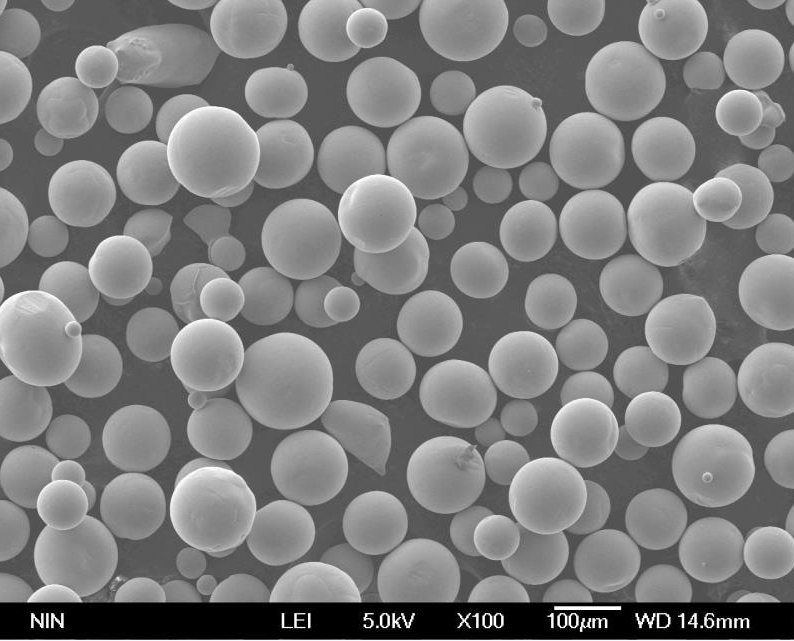
자주 묻는 질문
Q1: 단조 등급 재료를 선택할 때 어떤 요소를 고려해야 합니까?
단조 등급 재료를 선택할 때는 재료의 강도, 인성, 연성, 내식성 및 응용 분야의 특정 요구 사항과 같은 요소를 고려하십시오. 재료가 사용될 환경과 재료가 경험할 응력 유형도 중요합니다.
Q2: 단조는 재료의 특성에 어떤 영향을 미칩니까?
단조는 재료의 결정립 구조를 개선하여 강도 및 인성과 같은 기계적 특성을 향상시킵니다. 이 공정은 또한 재료의 피로 및 충격 저항성을 향상시킬 수 있습니다.
Q3: 단조에서 탄소강과 합금강의 차이점은 무엇입니까?
탄소강은 주로 철과 탄소를 포함하며 추가 합금 원소가 없습니다. 합금강에는 경화성, 강도 및 내마모성과 같은 특정 특성을 향상시키는 크롬, 몰리브덴 및 바나듐과 같은 원소가 포함되어 있습니다.
Q4: 티타늄 합금이 다른 단조 재료보다 비싼 이유는 무엇입니까?
티타늄 합금은 원료 티타늄의 높은 비용과 이러한 합금을 제조하는 데 필요한 복잡한 공정으로 인해 더 비쌉니다. 그러나 뛰어난 강도 대 중량비와 내식성으로 인해 고성능 응용 분야에 유용합니다.
Q5: 알루미늄 합금을 고응력 응용 분야에 사용할 수 있습니까?
2024 및 6061과 같은 알루미늄 합금은 강하고 가볍지만 일반적으로 강철 및 티타늄 합금에 비해 덜 까다로운 응용 분야에 사용됩니다. 무게 감소가 중요한 항공우주 및 자동차 응용 분야에 적합합니다.
